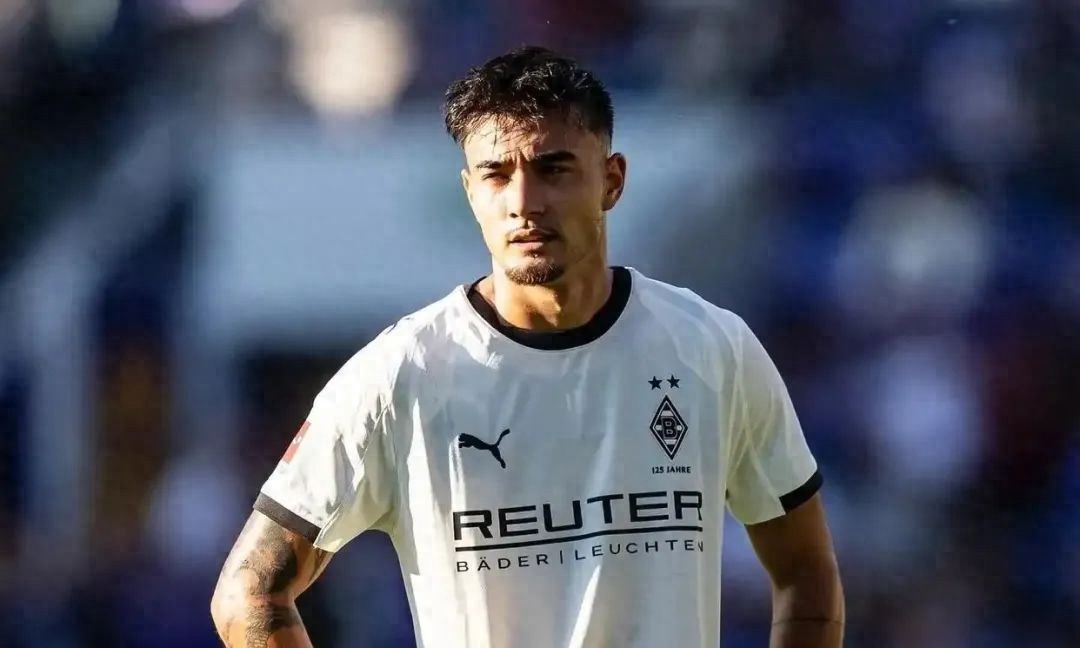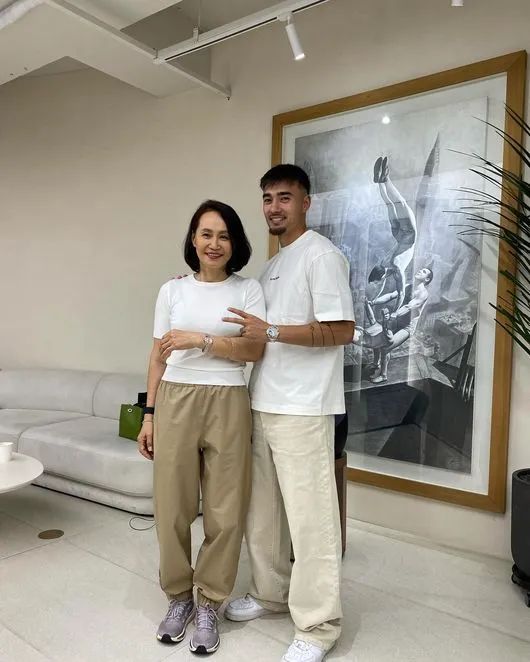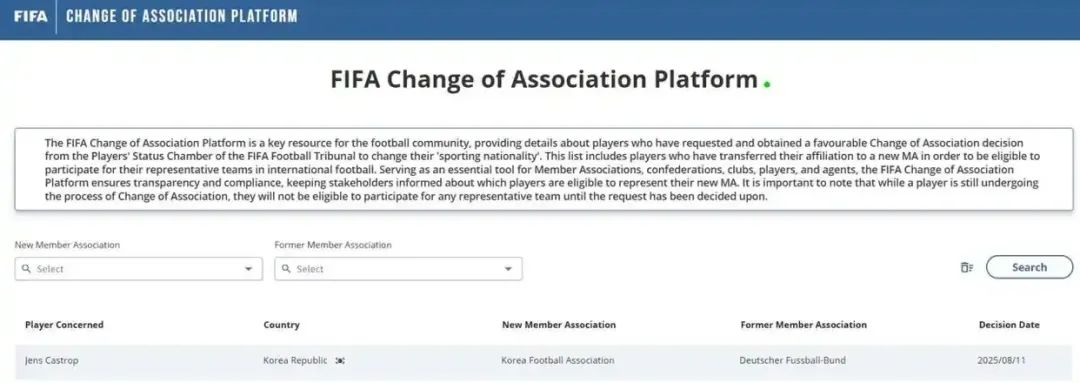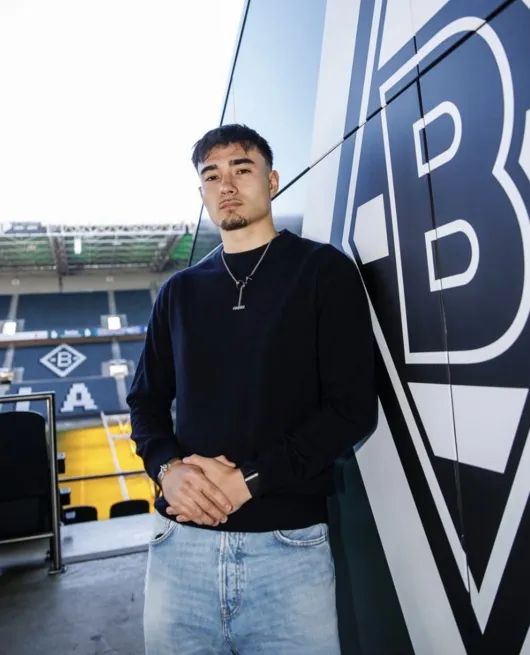The midfielder from Mönchengladbach has completed his transfer, and the first adult naturalized player of the South Korean men's national team is about to join?

Written by Han Bing On August 12, South Korean media reported that Castro-P, a 22-year-old midfielder who just joined the Bundesliga team Mönchengladbach this summer, has officially changed his association from the German Football Association to the Korea Football Association. This means that following the naturalization of American-Korean mixed-race forward Fehr in the South Korean women's team, the men's team may also end its history of not having any adult naturalized players.
Castro-P, 22, was born in Düsseldorf, is of German-Korean descent, and came up through the youth academy in Düsseldorf before transferring to Cologne at the age of 12. In early 2022, he was loaned to 1. FC Nürnberg in the second division, where he made his debut. In February of this year, he transferred to Mönchengladbach for 4.5 million euros and officially joined in the summer.
Castro-P's father is a German engineer, and his mother is a linguistics professor at Seoul National University, thus meeting the conditions for naturalization in Korea. Previously, he had played for Germany's U16 to U21 teams, and last season, he made 25 appearances for Nürnberg in the second division, scoring 3 goals and providing 4 assists, with a current market value of 6 million euros. However, at the end of April this year, Castro-P suffered a serious injury to his lateral collateral ligament in his knee but did not undergo surgery. On August 9, he came on as a substitute in Mönchengladbach's friendly match against Brentford.

In 2023, Castro-P's mother expressed her intention for her son to naturalize in Korea on social media, which caught the interest of then-South Korean national team head coach Klinsmann, who strongly advocated for Castro-P's naturalization. He originally planned to call him up for a friendly match in March last year, but the matter was shelved when Klinsmann was dismissed.
German media reported that in January and February this year, the coaching staff of the South Korean national team traveled to Europe to scout players, and besides Kim Min-jae, Castro-P was also under observation, where he performed well.
Hong Myung-bo recognized Castro-P's abilities; he has a large activity range in midfield, excels at pressing, tackling, and creating offensive opportunities, and can also play as a right-back, making him a rare versatile player defensively. The South Korean team is undergoing a transition and needs younger, powerful defensive midfielders, making Castro-P a suitable choice. The Korea Football Association has also restarted naturalization efforts, assigning dedicated personnel to conduct Korean language training for him three times a week. Now that Castro-P has completed the transfer of associations, the last obstacle to representing the South Korean team has been cleared. South Korean media generally believe that Hong Myung-bo will call up Castro-P during the September international match window for further evaluation.

Of course, Castro-P's naturalization in Korea still faces restrictions regarding military service. According to South Korea's Military Service Act, male citizens aged 18 to 32 must serve for 18 to 22 months, specifically requiring players to join the military-affiliated club Gimcheon Sangmu, which is unimaginable for Castro-P, who hopes to establish himself in the Bundesliga.
Although South Korea's Nationality Act states that mixed-race citizens can be regarded as dual nationals, citizens residing abroad are only required to serve after the age of 37, and there is no obligation for direct enlistment. However, this is limited to those who do not stay in Korea for more than six months and do not have profitable activities in Korea. Whether Castro-P's inclusion in the South Korean national team roster, along with allowances and bonuses from the Korea Football Association, sponsorship fees from sponsors, and commercial promotion activities for sponsors, meets the criteria for exemption from military service remains unknown.
It is worth mentioning that Castro-P is not the first naturalized player for the South Korean men's national team. In July 2024, Russian-born striker Arkadiy Chakh was selected for the South Korean U14 team, becoming the first naturalized player for the men's national team. Chakh studied at Park Ji-sung's football academy, where he scored 23 goals in 21 appearances in the K-League youth league, becoming the top scorer of the tournament. Currently, the 1.91-meter tall Chakh plays for the Incheon United U15 team in the K1 League.
Unlike Castro-P, Chakh was born in Suwon, South Korea, and both of his parents are Russian. He only obtained South Korean nationality after his parents naturalized in Korea in 2023. Compared to the younger Chakh, Castro-P, who can enter the senior national team, is clearly receiving more attention. After all, the latter can directly enhance the strength of the South Korean team in the upcoming World Cup in the United States, Canada, and Mexico next year.











 Links
Links
 Contact
Contact
 App
App


